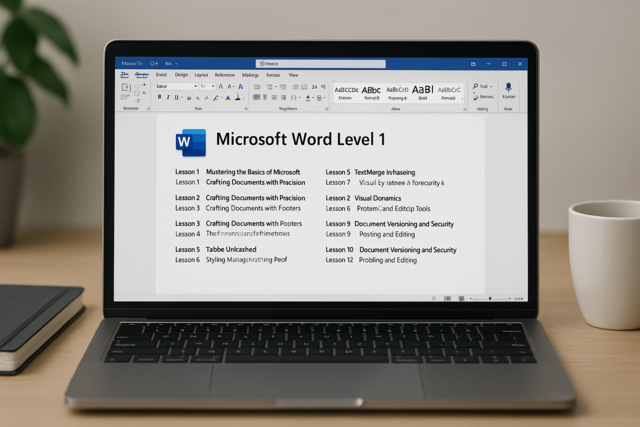Personal Communication Skills Level 1
Unlock Your Voice, Empower Your World

5 Hours average completion time
0.5 CEUs
8 Lessons
16 Exams & Assignments
5 Discussions
8 Videos
9 Reference Files
Mobile Friendly
Last Updated December 2025
"Personal Communication Skills Level 1" is a comprehensive course that delves deeply into the art of effective and diplomatic communication. The central theme of this course is to master the skill of communicating in ways that foster positive feelings and minimize negative ones. This is achieved by exploring both linguistic and non-linguistic elements of communication.
At the heart of this course is the study of language. Language is the primary tool in our communication arsenal, and its power in diplomacy and tact cannot be overstated. The course begins by exploring the nuances of language, emphasizing the importance of choosing words carefully. This isn't just about what is said, but how it's said. The subtleties of tone, phrasing, and context play a crucial role in effective communication. Research shows that the impact of words can be profound, affecting everything from personal relationships to professional interactions.
Nonverbal communication is equally significant. This course explores the various channels of nonverbal communication, including body language, facial expressions, and gestures. Studies suggest that a large percentage of communication is nonverbal. This module emphasizes the need to be aware of one's nonverbal cues and to interpret others' cues accurately. For instance, a smile or a nod can reinforce a positive message, while a frown or crossed arms might convey disapproval or discomfort.
The course also delves into the concept of communication climate. This refers to the emotional tone of a relationship or conversation. A positive communication climate is one where all parties feel valued and heard. This is particularly important in professional settings, where a positive climate can enhance teamwork, boost morale, and increase productivity.
Understanding the 'self' is another critical aspect of this course. It's essential to recognize one's own communication style, biases, and triggers. Self-awareness plays a crucial role in diplomacy and tact. For instance, being aware of one's tendency to react defensively to criticism can help one respond more constructively.
Conflict and emotional intelligence are closely related topics covered in the course. Managing conflicts effectively is a key component of diplomatic communication. The course discusses various strategies for conflict resolution, emphasizing the role of emotional intelligence. Emotional intelligence, the ability to understand and manage one's own emotions and those of others, is a crucial skill in resolving conflicts amicably and maintaining positive relationships.
Politeness is a vital part of diplomatic communication, and this course offers an in-depth exploration of this topic. Politeness theory, cultural variations in politeness, and the role of politeness in different contexts are discussed. Politeness is not just about following social norms but also about respecting others' feelings and viewpoints. Research has shown that politeness can significantly impact the effectiveness of communication in both personal and professional settings.
Lastly, the course examines the role of humor in communication. Humor can be a powerful tool in creating a positive atmosphere and building rapport. However, it's essential to use humor appropriately, as it can also be misunderstood or offensive. The course explores the use of humor in different contexts and its impact on organizational culture.
In summary, this multifaceted course provides students with a deep understanding of the various aspects of communication. It combines theoretical knowledge with practical insights, helping students develop the skills necessary to communicate with diplomacy and tact. By the end of this course, students will be equipped with the tools to navigate complex communication scenarios, build positive relationships, and effectively manage conflicts. This course is not just about learning communication strategies; it's about transforming the way one interacts with the world.
- Effective verbal expression
- Using humor constructively
- Understanding nonverbal cues
- Conflict resolution strategies
- Building positive communication climates
- Improved emotional awareness
- Politeness across cultures
- Managing communication perceptions
-

Business Research Methods
-

Management Consultant 101
-

Basic Writing Skills Level 2
-

Aquariums for Fish
-

How to Start a Gift Basket Business
-

Proofreading and Copyediting 101
-

How to Write Case Studies
-

Cooking Class Bundle: 5 Cooking Courses
-

How to Decorate a Room
-

Disaster Preparedness 101
-

Management Essentials
-

Workplace Sexual Harassment in the #MeToo Era
-

Beginner's Guide to Wine
-

All About Herbs
-

Great Family Vacations
-

Microsoft Word Level 1
-

Effective Communication Skills
-

How to Win Arguments
-

Self-Hypnosis Level 1
-

Slack
-

Lean Management
-

Candle Making
-

Spanish Culture 101
-

Western Calligraphy
